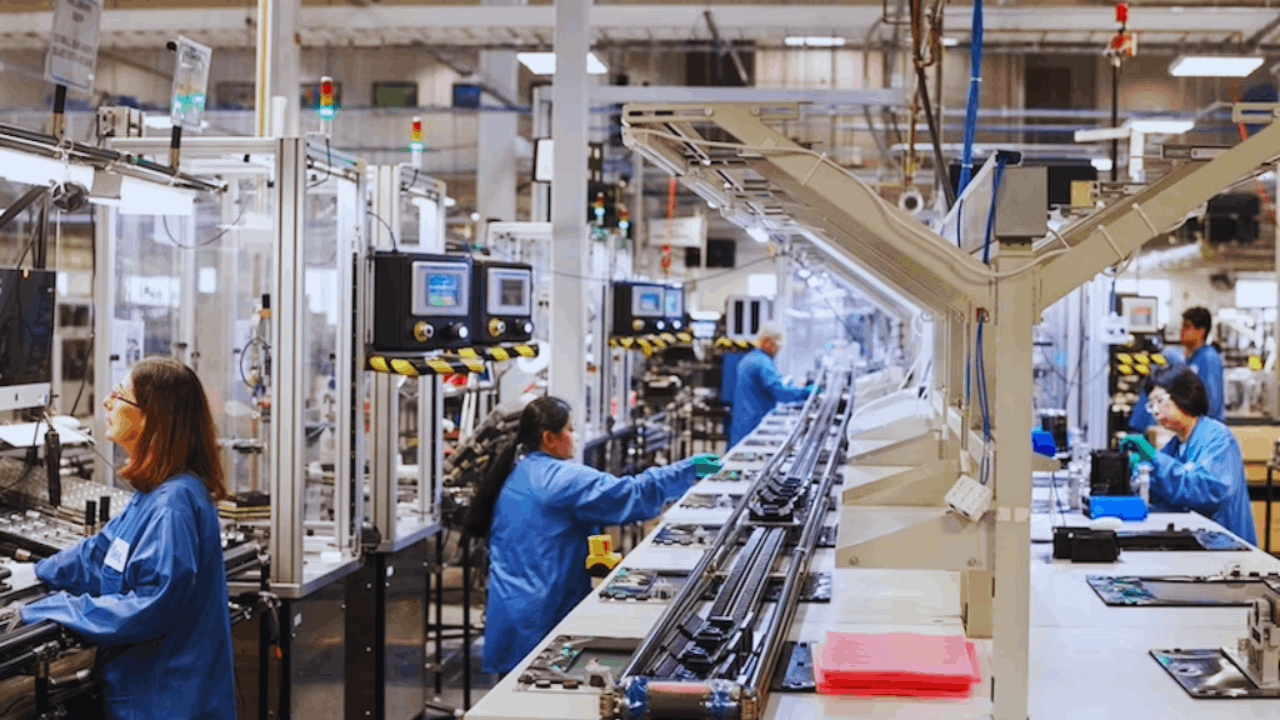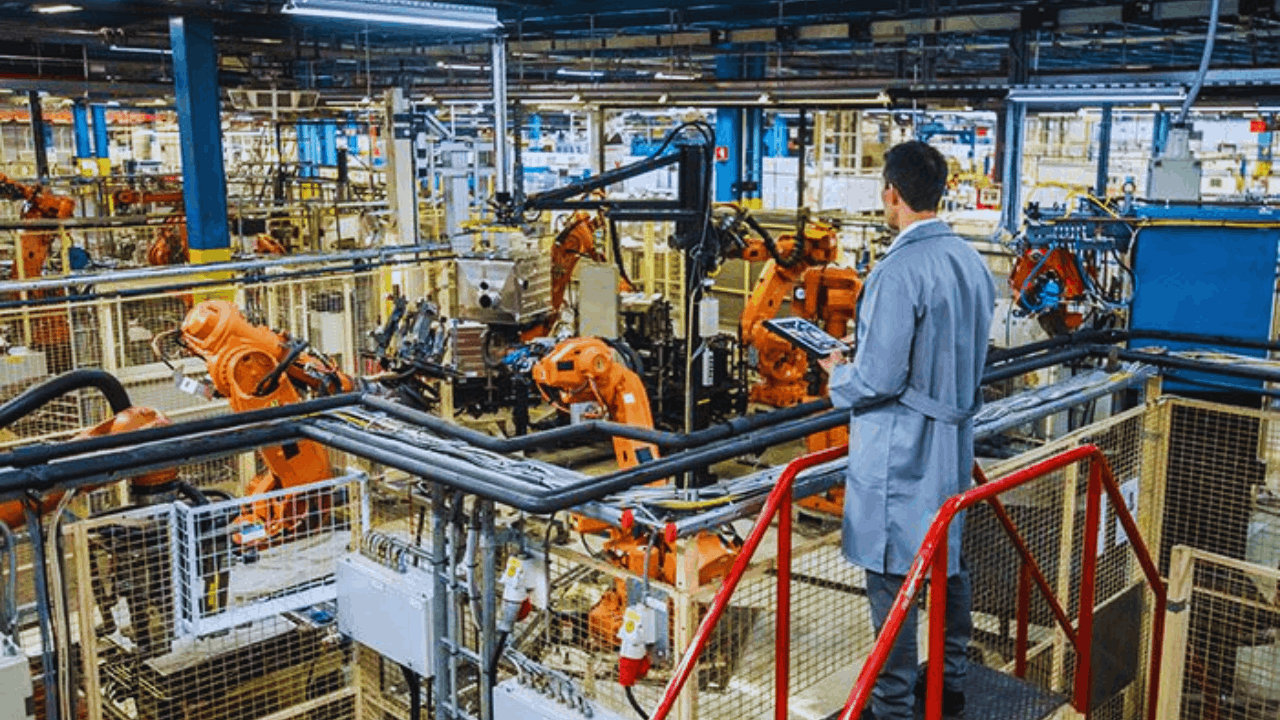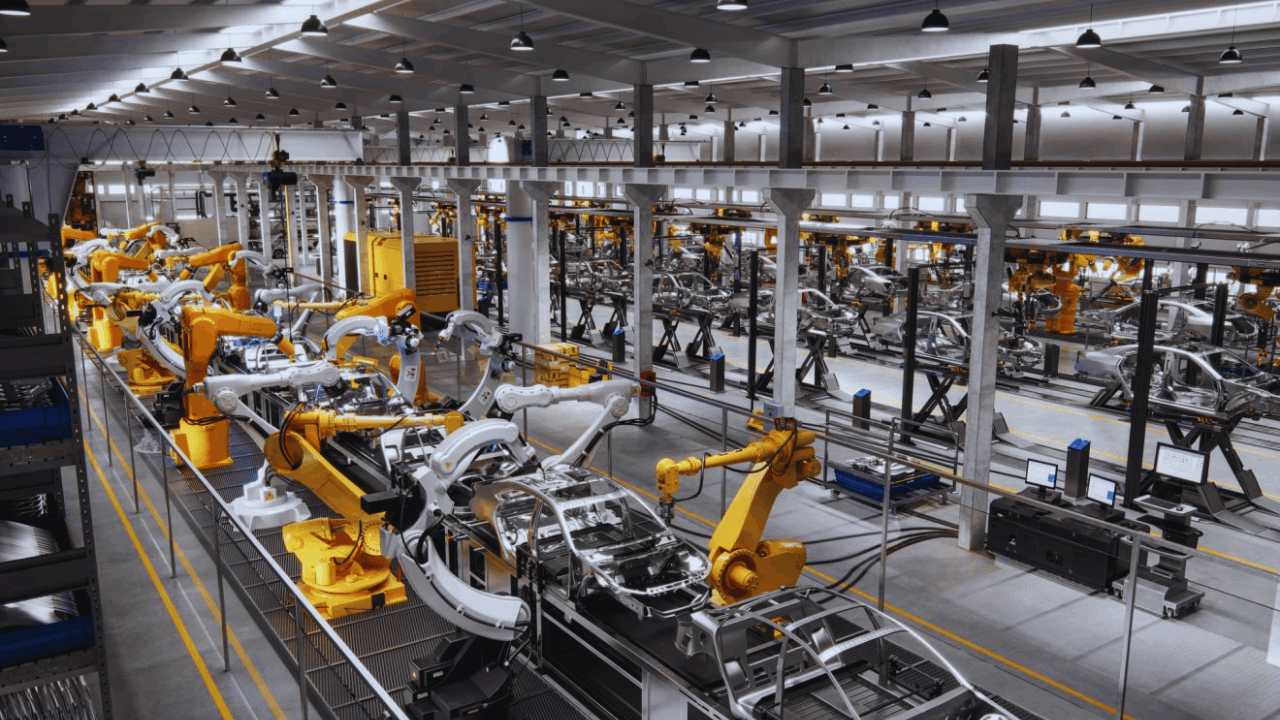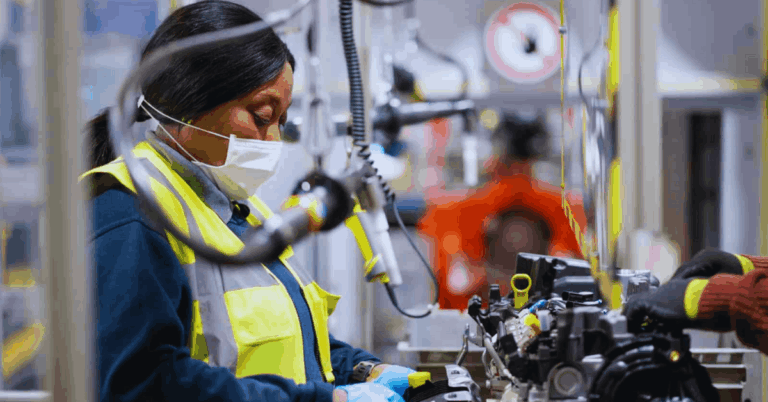If you’re searching for stable employment, now is the time to explore manufacturing companies hiring today.
Across the country, manufacturers are expanding operations and urgently recruiting new workers to meet production demand.
In this article, you’ll discover which companies are currently hiring, what benefits they offer, why these jobs are in demand, and how to start the application process.

Explore the Best Manufacturing Companies Hiring Now
Many leading manufacturing companies are scaling up and hiring in multiple regions.

These employers offer positions in production, logistics, maintenance, and more.
Whether you’re looking for your first job or switching careers, several reputable organizations are actively onboarding new staff.
Top National and Regional Employers in Manufacturing
Major employers like General Electric, Procter & Gamble, and Nestlé have ongoing recruitment campaigns across several U.S. states.
Regional companies in construction materials, plastic molding, and agricultural equipment are also filling production floor roles. These employers typically offer direct hire positions, meaning candidates avoid temporary agency contracts.
Many of these companies also have structured onboarding and paid training programs. Hiring is happening quickly in both urban and rural areas with a strong industrial presence.
High-Volume Hiring in Food and Beverage Plants
Food manufacturing is one of the fastest-growing sectors, with companies such as Tyson Foods, PepsiCo, and Kraft Heinz expanding their workforces. Production associates, machine operators, and sanitation workers are in high demand.
These roles often include shift flexibility and do not require prior factory experience.
Companies in this space are known for fast-paced environments and reliable job security. Facilities continue to scale up in response to steady demand from consumers.
Technology and Electronics Manufacturers Seeking Workers
Electronics manufacturers like Flex, Jabil, and Honeywell are hiring technicians, assemblers, and material handlers.
Many of these roles require attention to detail and comfort working with delicate components. Training is provided for new hires to familiarize them with tools, quality checks, and cleanroom protocols.
Companies in this space value punctuality and consistency. Openings can be found in both coastal hubs and inland industrial parks.
Auto and Heavy Equipment Manufacturers Recruiting Now
Auto part suppliers and machinery producers such as Caterpillar, Ford, and Magna International are adding to their operations teams.
These positions include stamping, welding, and final assembly jobs. Some roles also focus on logistics and internal material movement.
Facilities usually run around the clock, offering full-time shifts and overtime. Applicants who meet safety and physical standards are often hired quickly.
Benefits of Working at Manufacturing Companies
Working in manufacturing provides dependable pay and the opportunity to learn practical skills.

These jobs are not only essential but often come with a range of support programs and career development options.
Reliable Income and Incentive Packages
Manufacturing companies typically offer competitive hourly wages with shift premiums, attendance bonuses, and overtime availability.
Some also provide performance-based incentives, referral bonuses, and cost-of-living adjustments. Wages vary by region and company type, but many are above local minimum standards.
Steady demand keeps earnings consistent throughout the year. This makes manufacturing a strong option for individuals seeking financial security.
On-the-Job Training and Skill Advancement
Most employers provide hands-on training to ensure employees can safely and effectively operate equipment.
Opportunities exist to move up into lead, supervisor, or technician roles with additional certification or experience. Some companies sponsor technical courses, certifications, or internal learning platforms.
New hires often receive mentorship or coaching during the first few weeks. This learning-focused environment supports long-term career development.
Access to Health Benefits and Paid Time Off
Full-time manufacturing employees often receive medical, dental, and vision insurance. Many companies offer paid time off, holiday pay, and access to 401(k) retirement programs.
Additional benefits may include tuition assistance, transportation reimbursement, and on-site wellness services.
Companies with unionized environments often offer additional protections and negotiated terms. These benefits add stability and improve work-life balance.
Team-Oriented Culture and Job Stability
Manufacturing teams rely on strong communication and cooperation. Production workers often rotate tasks, assist teammates, and report safety issues collectively.
Companies encourage collaboration to enhance productivity and minimize downtime. Job retention is high among employees who maintain attendance and meet quality standards.
In many regions, manufacturing jobs have proven to be among the most secure long-term positions available.
Reasons to Apply for Manufacturing Jobs Today
Manufacturing remains one of the most resilient and accessible industries in today’s economy.

If you’re considering applying, it helps to understand why these jobs continue to draw applicants nationwide.
Thousands of Open Roles Across Multiple Industries
With ongoing supply chain demand, companies are hiring for thousands of open roles across the U.S. This includes food processing, metal fabrication, plastics, and medical device production.
Applicants can enter the workforce with minimal experience and learn as they go. Availability spans across rural, suburban, and city areas. Few industries are offering such broad entry-level opportunities.
No College Degree Required for Most Roles
Many entry-level jobs require only a high school diploma or GED. What matters most is reliability, work ethic, and the ability to follow instructions.
Companies prefer candidates who can learn quickly and adapt to procedures.
This accessibility opens the door to steady employment for job seekers without formal education. Applicants with relevant skills can qualify for higher-level positions even without degrees.
Pathways for Career Advancement Are Built In
Manufacturing companies value internal talent and often promote from within. Employees who stay with the company and build experience are typically given priority for supervisor or technician roles.
Certification programs and safety training often lead to higher-paying responsibilities. This structure supports workers who want to build long-term careers without switching industries. Advancement is common for those who show consistency and initiative.
Tangible Impact and Visible Progress
Working in a factory allows you to see real results from your efforts. Whether it’s a completed engine part, packaged product, or assembled electronic, there’s clear evidence of your contribution.
This brings a sense of pride to daily work and boosts motivation. Employees enjoy knowing their labor creates real products used across the country. It adds value to the effort put in every shift.
Requirements for Applying to Manufacturing Companies
Understanding what employers are looking for can improve your chances of being hired.

While requirements vary, certain skills and traits are common across most manufacturing roles.
Basic Qualifications and Education Background
Most manufacturing jobs require a high school diploma or equivalent. Some companies may waive this for entry-level roles based on work history or referrals.
Applicants must be at least 18 years old and authorized to work in the U.S. Specific roles may require certifications, machine knowledge, or forklift licenses.
Clear communication skills and basic reading comprehension are also helpful.
Physical Readiness and Safety Awareness
Many roles involve standing for long hours, lifting materials, and operating machinery. Physical stamina and awareness of safety guidelines are critical.
Applicants must be willing to wear protective gear and follow strict procedures. Companies provide safety training during orientation, but candidates must show a willingness to comply.
Workers who pass physical tests and screenings are more likely to be hired quickly.
Dependability and Shift Flexibility
Manufacturers value punctuality, attendance, and consistency. Shift-based roles often rotate or include early mornings, nights, or weekends.
Applicants should show availability for multiple shifts and willingness to work overtime. Reliable transportation and a history of on-time attendance are major advantages. Flexibility can lead to faster job offers and better pay options.
Teamwork and Communication Skills
Factory environments require cooperation and coordination with teammates. Workers must communicate, report issues, and support shared goals. Employers look for individuals who can adapt to fast-paced environments and learn from feedback.
These soft skills are often assessed during interviews or onboarding sessions. Success in manufacturing depends just as much on attitude as on physical ability.
How to Apply for Jobs at Manufacturing Companies
Applying to manufacturing companies is simple but requires focus and preparation.

Follow a few essential steps to ensure your application stands out.
Start by Searching Company Career Portals
Most large manufacturers have job listings posted on their websites. These portals allow you to search by location, shift, or department.
Review job descriptions to identify the best match for your skills. Create a profile to submit applications and track your status. Many systems also allow you to upload a resume and receive job alerts.
Prepare a Clear and Focused Resume
Even for entry-level roles, having a clean resume helps. Include prior work experience, certifications, volunteer roles, or anything that shows discipline and reliability.
Emphasize safety awareness, machine operation, or teamwork when possible. Keep formatting simple and remove errors. A good resume increases your chances of being noticed in competitive hiring rounds.
Submit Applications and Prepare for Interview Calls
After applying, monitor your email or phone for scheduling requests. Some companies may send assessments or screening questions before the interview.
Interviews are usually brief and focus on availability, experience, and work ethic. Be honest, focused, and direct in your responses. Prepare to discuss shift availability and physical readiness.
Follow Up and Stay Open to Other Roles
If you haven’t heard back in a week or two, follow up using the contact provided. Express continued interest and confirm your application status.
Be open to similar roles that may fit your profile better. Maintaining active communication demonstrates persistence and professionalism. Apply to multiple companies to increase your chances of getting hired.
Conclusion
With high demand, stable income, and accessible requirements, there’s no better time to explore manufacturing companies hiring today. These jobs offer more than pay—they offer structure, training, and upward mobility for those willing to learn.
If you’re looking to start fresh or grow your career, the manufacturing industry has opportunities waiting near you.












